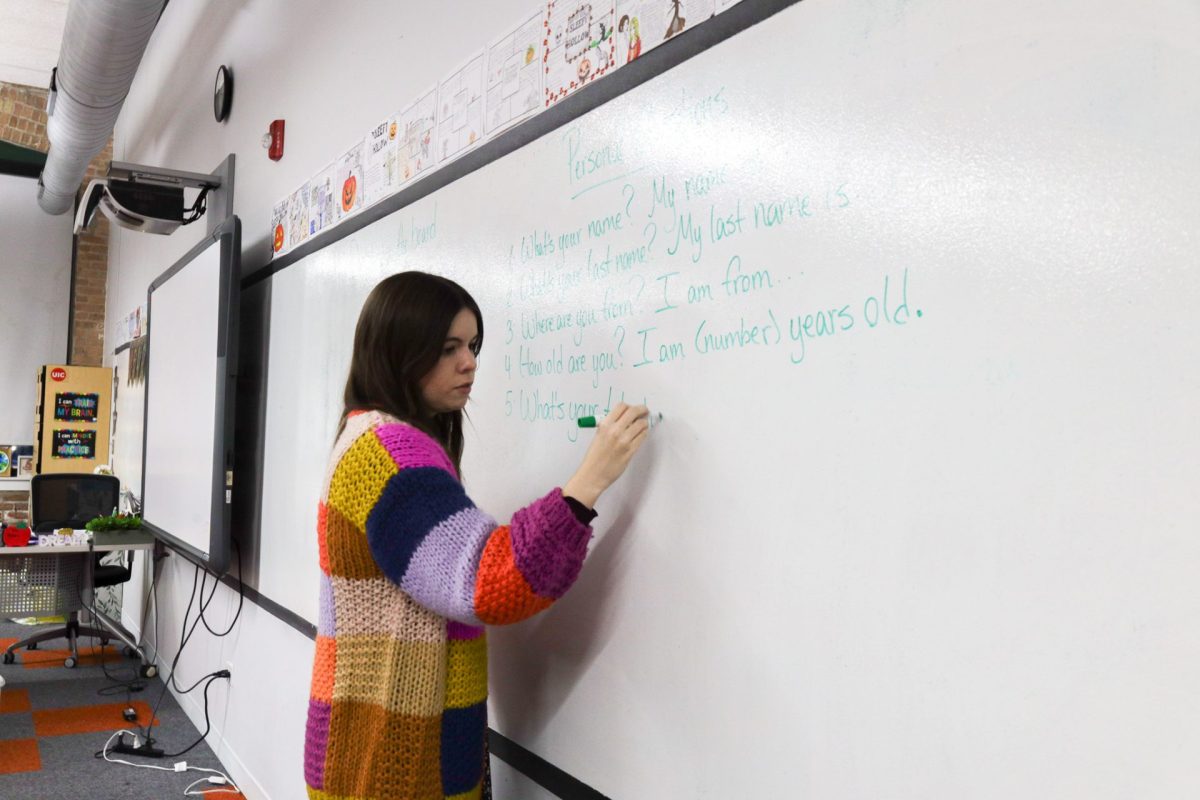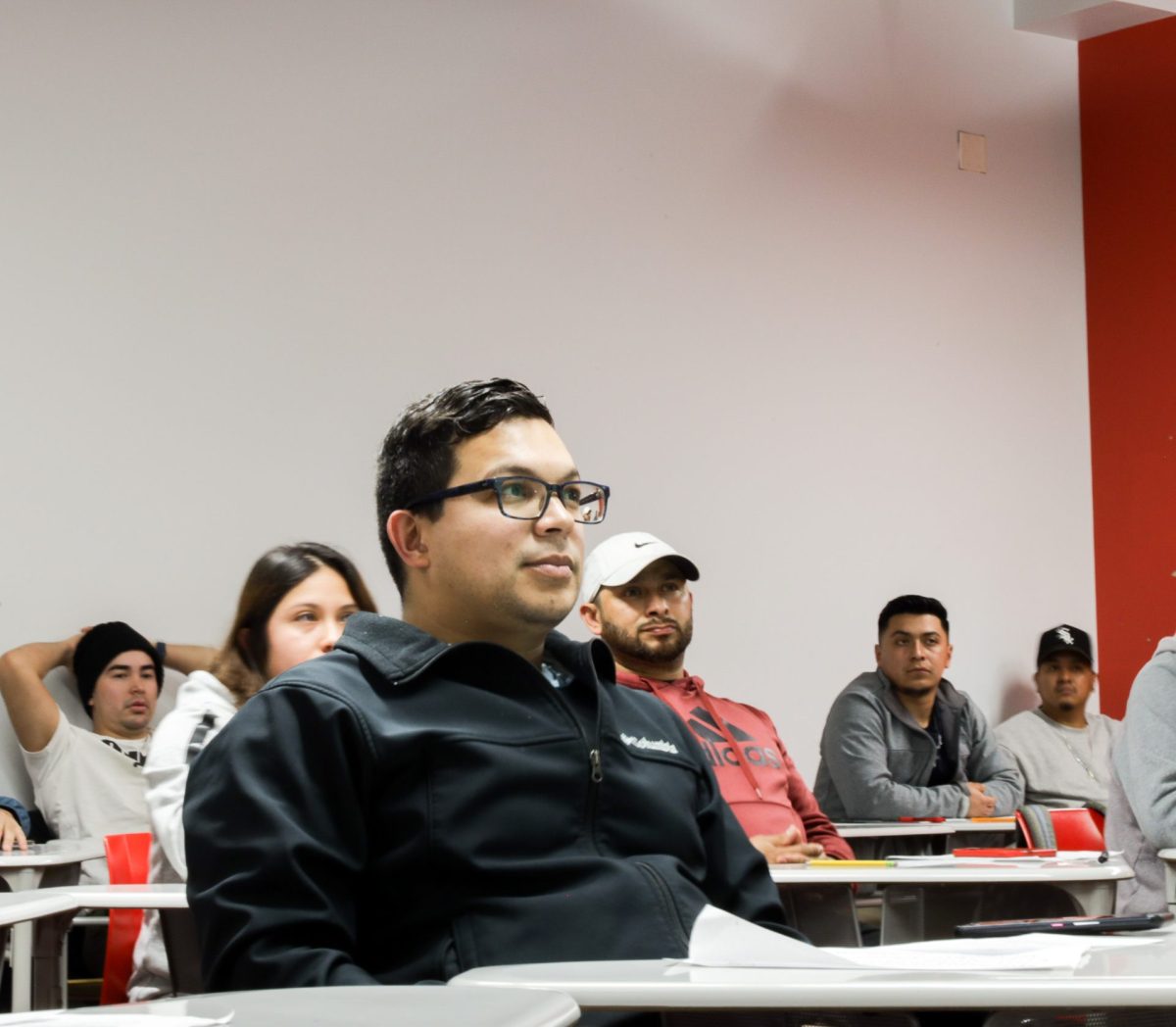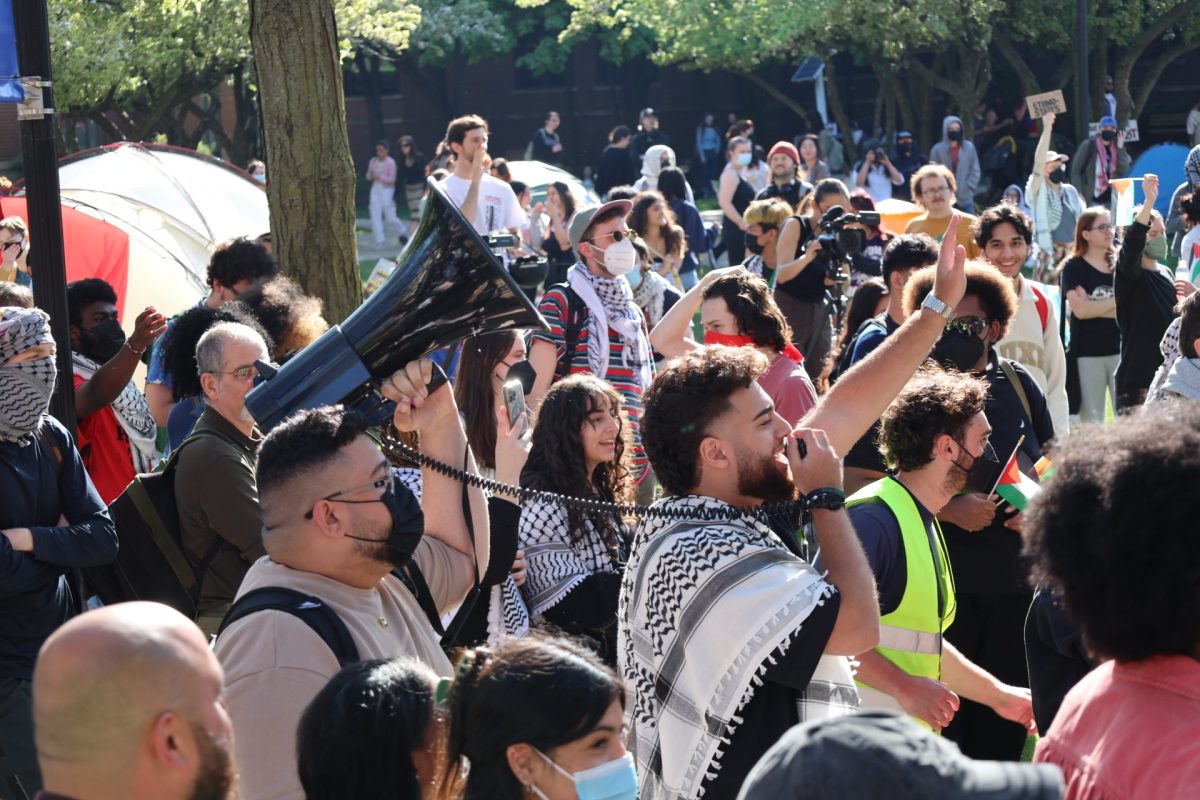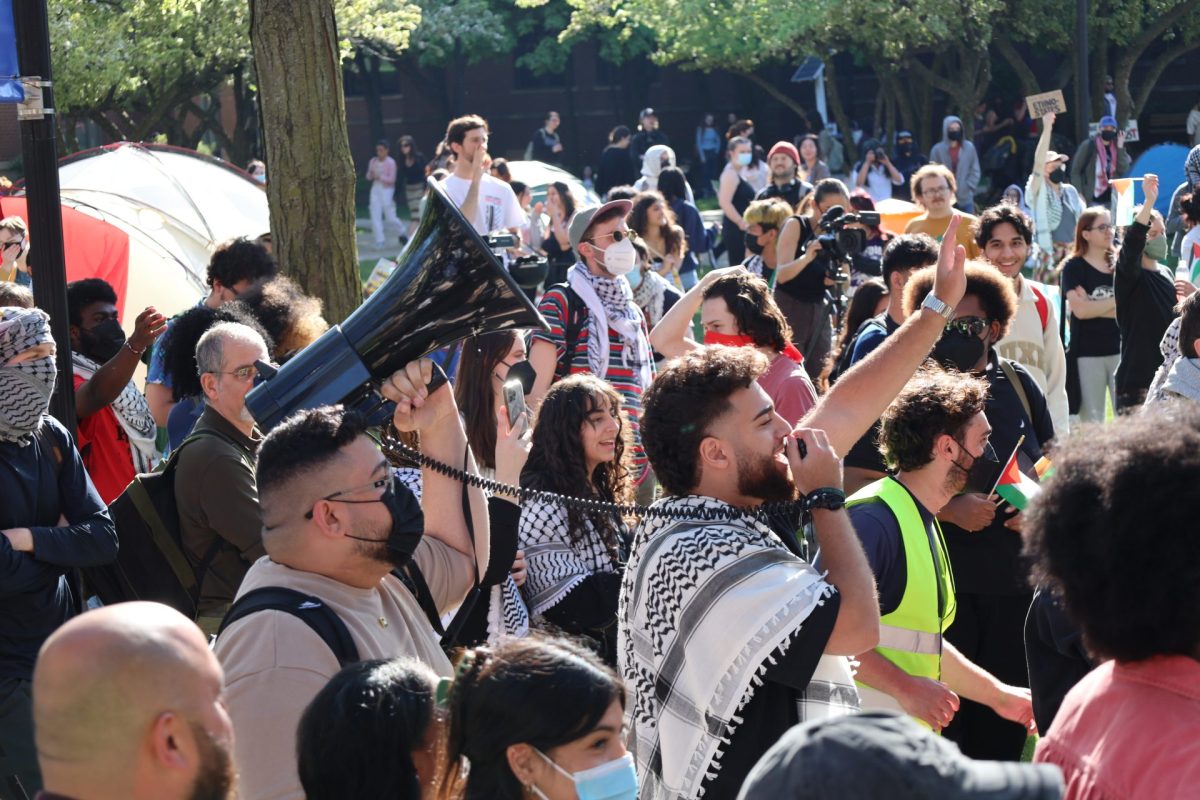Gabriel Jose DeJuane only had a high school education before coming to the U.S. two months ago from Venezuela. He thinks that learning English is “more important” than clothing and food, he said.
“It’s hard [to navigate life] when one is on the street,” said DeJuane, who is 22 and living at a shelter in Calumet City, a south suburb of Chicago.
He wants to learn English to communicate better. It would “make everything easier” to get a better job and find a way out of the shelter into a permanent home, he said.
Every Tuesday and Thursday, DeJuane is one of many Latine adult students who leave their labor-intensive jobs to meet in high school classrooms in Little Village to learn English. Some students are recent migrants, and say they hope to better their chances of employment and cultural integration in their new home country.
DeJuane already commutes for about one hour and 45 minutes to get from Calumet City to Little Village by train and bus to attend the classes.
He does not mind the long trip though, because he said the trip is worth it. He will take “as many classes as necessary to learn.”
The classes are hosted for free by Instituto del Progreso Latino, a non-profit organization in Little Village that also provides other immigration support to the low-income Latine community. The programs are funded by the state and federal grants.

But the participation in English classes has skyrocketed over the last year, said Laura Guerrero, the ESL coordinator at the Instituto.
“There’s been a big increase in Venezuelan migrants — as well as Colombians, but mostly Venezuelan — who’ve required support of all the programs that we have here,” Guerrero said in Spanish.
Graduates of the English language course at the Instituto receive a certificate of completion that can be used for employment.
The classes, she said, empower the new arrivals in many aspects of everyday life.
Students benefit from “the confidence they gain to be able to speak well and better communicate with their employers or the teachers of their children,” Guerrero said.
Kenny Curbelo, a 34-year-old migrant from Caracas, Venezuela, said that he decided to learn English because he was recently promoted to the IT department at his manufacturing job despite the language barrier and only having a high school diploma.
Learning English would expand his opportunity to further his career which he built through teaching himself and hard work. He plans to complete the course in June.
Curbelo has been in Chicago for about a year. His journey north, first from Venezuela to Ecuador in 2015 fleeing an economic crisis caused by political turmoil and then to Chicago in 2022, had been traumatic, he said.
But he is eager to foster a new life.
The majority of migrant students using services at the Instituto have little to no education. There are very few that have college education and most look for jobs in construction, house cleaning and food service, according to Guerrero.
“This will make their new lives in the U.S. difficult because they’ll have labor intensive jobs with little pay,” Guerrero said.
Most migrant students prioritize work, said Guerrero, which means that once they find a job, they may stop attending class.

“They stop coming to class because maybe their job is far away, or their housing has changed,” Guerrero said. “And the priority for them is to eat, work, and we’ve seen them drop out regularly.”
That may be the case for DeJuane because he is unsure of where he’ll find a permanent home and if he will be able to continue attending classes or not.
Over the past months he’s been able to work shoveling snow, driving and delivering food while waiting for his work permit.
He plans to work in Chicago for a few years and send money back to his family in Venezuela. He also has hopes of moving back home and starting a business there.
For now, he said, he will do his best to start on his dream by learning the language that could lead him to success.
Though Guerrero said that the classes support DeJuane’s dreams, the organization needs a permanent building of their own to ensure that more migrants get the same opportunities. Right now, they host the classes at Instituto Health Sciences Career Academy, a high school that lends them the space.
If they had more space, she said, they could add more classes and instructors.












